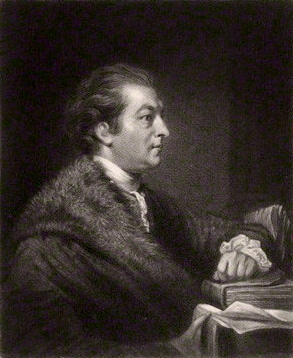Samuel Dyer (translator) facts for kids
Samuel Dyer (1725–1772) was an English person who translated books and documents. He was known for his intelligence and for being part of important literary groups in London.
Contents
Samuel Dyer's Life Story
Early Life and Education
Samuel Dyer was born in 1725 in London. His father was a jeweller. Samuel's parents were Dissenters, a type of Protestant who did not agree with the official Church of England. They hoped he would become a minister.
He went to a school run by John Ward. After that, he attended Philip Doddridge's academy in Northampton. He then studied at the University of Glasgow. Later, he went to the University of Leyden in the Netherlands for two years.
Skills and Interests
When Samuel returned to England, he was very smart. He knew a lot about classical history and mathematics. He could speak French, Italian, and Hebrew. He also loved studying philosophy. However, he decided not to become a minister. He also did not want a regular job. He preferred to spend his time with other writers and thinkers.
Joining Literary Groups
In 1749, Samuel Dyer became a founding member of the Ivy Lane Club. This club was started by the famous writer Samuel Johnson. They met every week to discuss ideas.
Samuel also helped translate some Latin writings. These were left by Daniel Williams, who founded a library. But Samuel soon grew tired of this work. After visiting France, he planned to translate a French book called Les Mœurs. He started the work, but then stopped.
Financial Challenges
At this time, Samuel did not have much money. His father had passed away. Most of his father's money went to his mother, older brother, and sister. Samuel Johnson and Sir John Hawkins wanted Samuel Dyer to write a book about Erasmus. Instead, Samuel worked on an older version of Plutarch's Lives.
For this book, published in 1758, he translated two lives: Pericles and Demetrius. He also checked and corrected the whole book. He even taught Greek to Richard Gough, who was an expert on old things.
Later Life and Investments
In 1761, Samuel was chosen to be a member of the Royal Society. This is a very old and respected group for scientists. In 1766, he joined their council. He also became a member of the Literary Club when it started in 1764. He was an important person in this club.
Through the Literary Club, Samuel met Edmund Burke. They became very good friends. Another club member helped Samuel get a job connected to the war office.
Later, Samuel's mother and brother passed away. He inherited about £8,000. He invested this money in the East India Company. He hoped to become a director there, but he did not succeed. He then made some bad investments. This was suggested by Samuel Johnson. He lost a lot of money.
Final Years
Soon after losing his money, Samuel became very ill. He passed away on September 15, 1772. He did not leave enough money to pay for his own funeral.
Samuel Dyer's Reputation
Different Opinions
Sir John Hawkins, a writer, said that Samuel Dyer wasted his life. He claimed Samuel chose to live a bad life. However, Edmond Malone, another writer, disagreed strongly. He said Hawkins's description of Samuel was unfair. Malone believed Hawkins was biased because he had argued with Edmund Burke, Samuel's friend. Thomas Percy, a bishop, also said Hawkins's story was wrong.
The Junius Letters Theory
Sir Joshua Reynolds and Edmond Malone both thought Samuel Dyer might have written Junius's Letters. These were a series of famous, secret letters published in newspapers. They criticized the government.
The idea that Samuel wrote them was based on a few clues. After Samuel died, Reynolds, who was helping with his affairs, went to Samuel's rooms. There, he found William Burke destroying many papers. When Reynolds asked why, Burke said the papers were important to him, but not to anyone else. This made some people wonder if the papers were related to the secret letters.
 | Lonnie Johnson |
 | Granville Woods |
 | Lewis Howard Latimer |
 | James West |


